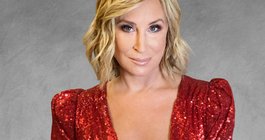
June 14, 2017
A day after City Controller Alan Butkovitz expressed concern that early revenue shortfalls for Philadelphia's sugar-sweetened beverage tax will create a "multimillion-dollar burden" on the city, finance director Rob Dubow issued a response clarifying the Kenney administration's budget projections.
Butkovitz suggested Tuesday it was highly improbable that the city could collect the $46 million it had projected in the first six months of the current fiscal year. With a 17 percent shortfall against a fixed monthly projection of $7.7 million, soda tax revenue is about $20 million shy of the target with two months remaining.
In April, the most recent month the city's collection of $6.5 million was a 7 percent decline from a high of $7 million in March. To date, the city has collected $25.6 million in soda tax revenue, $5.2 million below a projection based off $7.7 million per month.
Does this early trend mean the city's long-term budget projections are too far off the mark to fund the Pre-K, Rebuild and community school programs the Kenney administration has held up as the tax's universal benefit to the public?
On Wednesday, as a panel of Commonwealth Court judges reaffirmed the legality of the Philadelphia Beverage Tax, Debow replied to Butkovitz with a letter of his own.
"In the tax's first fiscal year we knew that the early months' collections would be lower than the $7.7 million you list in your chart because some existing inventory would not be subject to the tax and that that would suppress collections," Dubow wrote, explaining that the city accordingly revised projections below $7.7 million at the outset.
The larger issue with any growing sense of panic, Dubow said, is that the city simply doesn't yet have enough to data to pin down monthly projections adjusted for seasonality.
"It is also important to note that we never expected the tax to hit $7.7 million in every month as listed in your chart," Dubow wrote. "We always knew that there would be seasonality in our collections, but since we did not have past data on which to base our monthly projections, we just listed the monthly average, $7.7 million, we would need in order to hit our fiscal year projections."
Dubow conceded that $46 million in FY17 is unlikely at this point, but the city maintains its expectation that collections for FY18 will reach $92 million.
"Once we have a year of collections, we may very well find that the first few months of the calendar year have lower beverage sales than the hotter months or the holidays, which would allow us to still hit a monthly average of $7.7 million over the course of a year."
One other point Dubow challenged was Butkovitz's comparison of the soda tax shortfalls to lower-than-expected collections from the School District of Philadelphia's cigarette tax. Butkovitz said the district budgeted $80 million in its first year but never hit that target, generating less than $50 million in the current year.
"In your letter, you write that the School District initially budgeted $80 million for the cigarette tax. The District actually budgeted far less than that," Dubow wrote. "Your January 2017 economic report shows that while initial projections were above $75 million for a full year, the School District actually budgeted $49 million for FY15 and received $50 million and budgeted $60 million for FY16 and received $59 million."
Butkovitz, who is completing his final term as City Controller, has requested that the city provide short- and long-term revenue projections demonstrating how the soda tax can meet future funding goals.